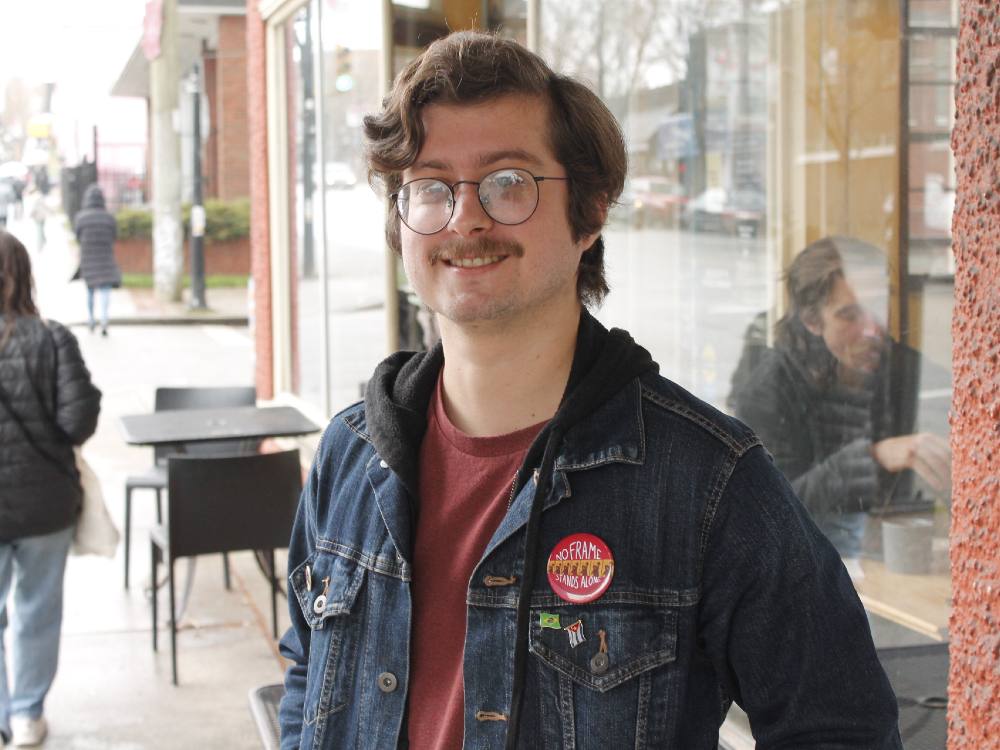It began with a dispute over overtime pay for animators on a raunchy Seth Rogen film about an anthropomorphic sausage.
Seven years later an international entertainment union has its sights set on Vancouver’s animation studios, the frontline of a nationwide push to organize workers in the industry.
The International Alliance of Theatrical Stage Employees, or IATSE, has dispatched two organizers from its international division to Vancouver as the latest step in years-long effort to organize workers in the city that started with 2016 animated film Sausage Party.
Their goal is to support IATSE Local 938, which hopes to organize the more than 10,000 animation workers in B.C. and across Canada, as well as tens of thousands of other workers in visual effects, game design and related jobs.
William Gladman, who began working for IATSE’s international office in November, wouldn't reveal details of the union’s plans.
But he said Local 938 had been “inundated” with queries from other animators across Canada who are looking to unionization because of short-term contracts, uncertain hours and uneven pay.
“They want to actually forge a career they can do for their lives and then retire with something in their pocket still. At the moment, the industry just isn’t providing that for people,” Gladman said.
Workers in the sector are at the centre of the discussion of the impact of the growing impact of gig work, where a series of contracts replace the traditional employee-employer relationship.
IATSE’s campaign in Vancouver is part of a years-long organizing effort in the city’s flourishing animation scene.
A 2020 report from industry group DigiBC found there were more than 10,000 workers in animation and related sectors at 49 surveyed studios. But Local 938’s secretary Eddy Pedreira estimates the total figure could be higher, buoyed by steady demand from streaming giants like Netflix and Disney+.
“A lot of the studios still are having an animation boom in Vancouver because of the whole streaming era,” Pedreira said. He said the growth meant small studios could suddenly afford to hire large teams of new animators, often young workers on short-term contracts linked to a specific project or production.
In many cases, Gladman said, the short-term contracts mean workers have very little bargaining power in their own workplaces.
“People are working often on contracts as short as three or six months. They have no notice on whether you’re going to be renewed up until really the last minute in some cases. People feel powerless in those situations and are looking for stability,” he said.
In 2016, Vancouver animation studio Nitrogen Studios Canada Inc. was contracted to do work for Sausage Party, an animated R-rated movie where Vancouver-born Rogen voices the titular tube.
A group of employees later alleged they had been denied overtime pay for the long hours they spent working the film. The studio argued it did not have to pay those workers overtime because of a clause in the province’s employment law that exempts “high-technology professionals.”
But the province’s Employment Standards Branch disagreed, and ordered the studio to pay up in 2017. Nitrogen Studios has since been acquired by British-based Cinesite Studios.
It was a turning point for animation labour organizing in Vancouver. A grassroots group of workers began doing wage surveys and workshops. They called themselves the Art Babbitt Appreciation Society, after the legendary Disney animator who joined the company’s cartoonists in an infamous 1941 strike.
“The Art Babbitt Society had done wage surveys before, and they had found that not only were wages completely stagnant, but that people who had worked for five years or more were making less than the people who were coming in,” Pedreira said.
It wasn’t until early 2020 that Vancouver’s first animators would sign union cards. Pedreira said the campaign at Titmouse Inc., which employs roughly 700 people across its three studios in the United States and Canada, began with town halls and meetings.
When the COVID-19 pandemic began, it shifted onto the Discord platform of servers and chatrooms. “We had a couple of advantages where a lot of people who go into animation are nerdy folks,” Pedreira said.
When the time to vote came, 98 per cent of workers voted in favour of joining.
Pedreira said that the first contract guaranteed wage minimums in every department, plus a comprehensive bullying and harassment policy. “There are people at Titmouse who say that after the agreement went live, I think they made $300 more per week,” Pedreira said.
IATSE’s immediate focus is Vancouver, but its ambitions are national. Pedreira says IATSE eventually aims to organize studios in Toronto, Halifax, Montreal and other cities across the country.
Their model is the United States, where the rate of unionization among animators is much higher. The Art Babbitt Society’s name was an obvious nod to the labour campaigns animators launched in the 1930s and 1940s. And Local 938’s chosen numbers are a play on IATSE Local 839, the American animation guild that represents workers at Disney, Netflix and other industry giants.
“I think it’s important to impart that there is history behind this.… this has been done before,” Pedreira said.
Allison Smartt, an organizer with IATSE Local 839 in California, says many American studios have Canadian offices in Vancouver. The key difference is that the American studios are often unionized, the Canadian ones never are, which Smartt says means Canadian animators are often getting a worse deal.
“I would say that having a satellite studio outside of a union-dense area is probably going to help the company save money,” Smartt said. “They don’t have to meet with their workers and discuss higher wages. they don’t have to sustain the same quality of programs that they have here.”
But unions on both sides of the border are enjoying a resurgence in labour activism after decades of declining private sector unionization rates, thanks in part to inflationary pressures and low unemployment. British Columbia passed legislation last year making it easier for workers to unionize. “It just seems like all the stars have aligned,” Gladman said.
Smartt, who has been advising Local 938 on its strategy, says the key difference between the two countries is likely history and size.
Los Angeles, America’s animation hub, has decades of history of labour organizing and a tight-knit network of unions representing actors, animators and other entertainment workers. Vancouver, by comparison, is smaller and newer. That organizing will take time, Smartt says, but ultimately pays off.
“It’s sort of a chicken and an egg question. But there’s no doubt there’s an appetite in Vancouver to organize,” Smartt said. ![]()
Read more: Art, Labour + Industry, Media
















Tyee Commenting Guidelines
Comments that violate guidelines risk being deleted, and violations may result in a temporary or permanent user ban. Maintain the spirit of good conversation to stay in the discussion and be patient with moderators. Comments are reviewed regularly but not in real time.
Do:
Do not: